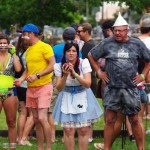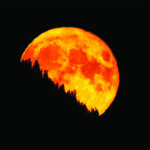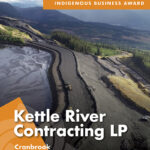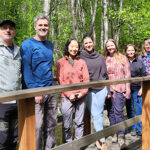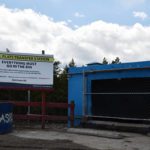Home »

Reconciliation through awareness
Letter to the Editor
History was made last month when a Talking Stick from the Songhees First Nation was presented to our Speaker of the Legislature, the Honourable Linda Reid. This was an important example of the B.C. government’s commitment to reconciliation and an embodiment of what reconciliation means.
The Talking Stick is a powerful symbol of consensus-style governance.
It commands respect for free speech, something that is core to our democracy. With the Talking Stick, a speaker has the freedom and power to say what is in his or her heart, and it emphasizes the importance of listening.
The Talking Stick also represents a change in the way we recognize First Nations history and culture, and highlights the need to be collaborative and partners in the work we do. It is a powerful reminder that First Nations and the need for reconciliation should always be respected.
On June 21, we mark the 20th anniversary of National Aboriginal Day.
It’s an opportunity to continue to build understanding, raise awareness and celebrate the successes of Aboriginal people and communities.
I want to emphasize the importance of reconciliation through awareness.
By participating in National Aboriginal Day events, we can all take an important step in fostering collaboration and embracing reconciliation.
Our government has been working in partnership with First Nations and Aboriginal leaders on reconciliation for well over a decade, and the release of the Truth and Reconciliation Commission’s 2015 report has energized this work across the country. The report called for actions to be taken by governments and institutions, calls to action we take seriously as we work to create a culture of awareness in the province.
Reconciliation comes in many forms. To me, reconciliation means to respect, to be aware and to acknowledge each other as equals. It’s about teaching our children about their past, and it’s about creating understanding and better opportunities for Aboriginal people.
It may be the 20th anniversary of National Aboriginal Day but we still have work today to achieve equality for Aboriginal people in Canada.
I’m proud of the work we have already started in British Columbia, developing revenue-sharing agreements, economic partnerships, education improvements and skills-training initiatives that help to rebuild First Nations communities that had been left out of opportunity for far too long.
The Aboriginal youth demographic is the fastest growing in B.C. with more than half of the population under the age of 25. Our youth is our future, and we need to establish a collaborative environment, one that will be vital to long-term collaboration.
Participation in National Aboriginal Day events will spark conversations, and conversations spark understanding. It is my hope they will be the catalyst for better awareness. I encourage all British Columbians to do their part, attend a National Aboriginal Day event in your community.
John Rustad,
Minister of Aboriginal Relations and Reconciliation
